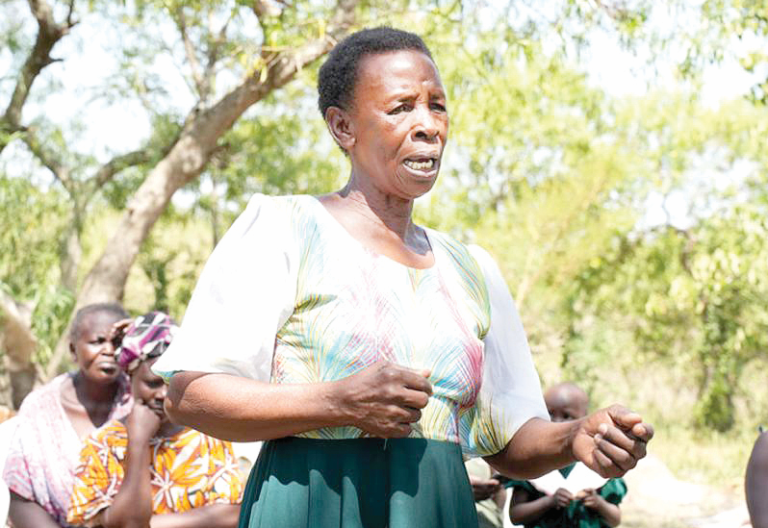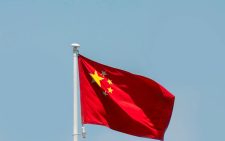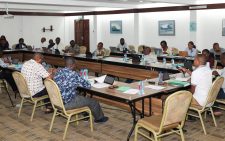Living Lakes Network inject eco-friendly momentum

As the largest freshwater lakes in China and Africa, respectively, Poyang Lake and Lake Victoria have witnessed a cross-continental collaboration for sustainable development and ecological preservation.
In recent years, China’s Jiangxi Province, home to Poyang Lake, has strengthened its cooperation with Kenya, Tanzania and other nations bordering Lake Victoria. By sharing their expertise in lake management, the province and its partners have injected fresh momentum into China-Africa efforts toward eco-friendly modernisation.
In Kenya’s Tanyoka community, located on the north-eastern shore of Lake Victoria, traditional cooking methods have given way to energy-efficient clay stoves. Introduced by Chinese experts from Jiangxi Province, these stoves increase fuel efficiency by up to 50 per cent. Crafted from locally sourced materials, the stoves are easy to produce and offer residents an opportunity to generate additional income through sales. The adoption of these stoves has brought benefits to the community.
Reduced firewood consumption aids forest conservation and alleviates the burden on women and children who traditionally gather wood.
Water sources
“Since fully cooking our food with these stoves, we have not experienced severe cholera outbreaks in recent years,” said Elsa Anyango, deputy secretary of the Tanyoka community.
Xu Weimin, party secretary of the Jiangxi Research Academy of Ecological Civilisation, who visited the Lake Victoria region last year, said that the lake faces challenges similar to those once encountered by Poyang Lake, including soil erosion and wetland degradation.
Lake Victoria is the chief reservoir of the Nile, while Poyang Lake connects with the Yangtze River. Both lakes serve as vital water sources, supporting millions of people and providing habitats for diverse wildlife. In recent years, with support from organisations such as the Global South-South Development Centre Project and the United Nations Perez-Guerrero Trust Fund, Poyang Lake and Lake Victoria, both members of the Living Lakes Network, have joined forces to address these shared challenges.
The collaboration has facilitated knowledge exchange between Jiangxi Province and the countries surrounding Lake Victoria, including Uganda, Tanzania and Kenya. Initiatives have included training programmes on cultivating high-value crops such as tomatoes, peppers and cucumbers; promoting eco-friendly practices like integrating duck farming in rice paddies to control pests and weeds, thereby reducing pesticide use; and demonstrating biogas fermentation and solar power generation to provide clean energy solutions.
Chinese experts shared successful strategies used in Poyang Lake’s restoration, and adapted them to suit the specific conditions of the Lake Victoria basin. In Homa Bay, along Lake Victoria, sustainable agriculture trials are underway.
Eric Ochieng, chairman of the KAMSER Shoreline Youth Group, along with over 30 members, is engaged in organic farming of vegetables, sugarcane and legumes under the guidance of Chinese agricultural specialists.
“By avoiding chemical fertilisers, we reduce nutrient pollution in the lake. Agroforestry practices help prevent soil erosion, and our organic produce commands better prices,” Ochieng said, exuding confidence.
Recognising the need for localised solutions, Chinese experts adjusted their approaches to suit Lake Victoria’s context. Initially considering comprehensive watershed management plans, they revised their strategies upon discovering limitations in remote sensing data, environmental monitoring equipment, and cross-border coordination.
Focusing on “small yet impactful” initiatives, Jiangxi Province has provided funding and technical support for community projects such as improving sanitation facilities, rainwater harvesting, afforestation and sustainable farming practices. Training programmes have expanded beyond government officials to include environmental organisations and community members.
Notable progress
Upon returning to Lake Victoria after five years, Mao Yuting, an associate researcher with the Jiangxi Research Academy of Ecological Civilisation, noted the progress: restaurants installing biogas systems to utilise kitchen waste as cooking fuel, and residents planting fruit trees such as mangoes, papayas and bananas while engaging in poultry farming-practices reminiscent of those in the Poyang Lake region.
Despite Africa’s abundant bee populations, honey yields remain low due to technical challenges. Chinese experts have provided guidance on beekeeping techniques to enhance honey production across the continent. He Xujiang, a researcher in animal science and technology at Jiangxi Agricultural University, said it is important to join hands with African counterparts to address challenges such as wax moth infestations and to facilitate further training opportunities.
“We maintain close contact with the Lake Victoria region, aiming to help African beekeepers achieve substantial production increases,” he said.
Balbina Andrew, executive director of the environmental conservation organisation, Nourish Africa, in Tanzania’s Mwanza region, highlighted the richness of sustainable development methods derived from the Poyang Lake area.
“What we have learned encompasses both tools for ecological conservation and strategies for promoting development and improving livelihoods,” she said, adding that the partnership between the two lakes has been recognised as a model of South-South cooperation by the United Nations.
Godfrey Ogonda, director of Friends of Lake Victoria in Kenya, expressed hope for the continuation of joint projects, saying that nurturing grassroots community initiatives is crucial for the sustainable development of the Lake Victoria area.
Liu Bing, deputy director of the Jiangxi Development and Reform Commission, said that Jiangxi will persist in deepening cooperation between the Poyang Lake and Lake Victoria regions, and jointly advance toward green and sustainable modernisation.















